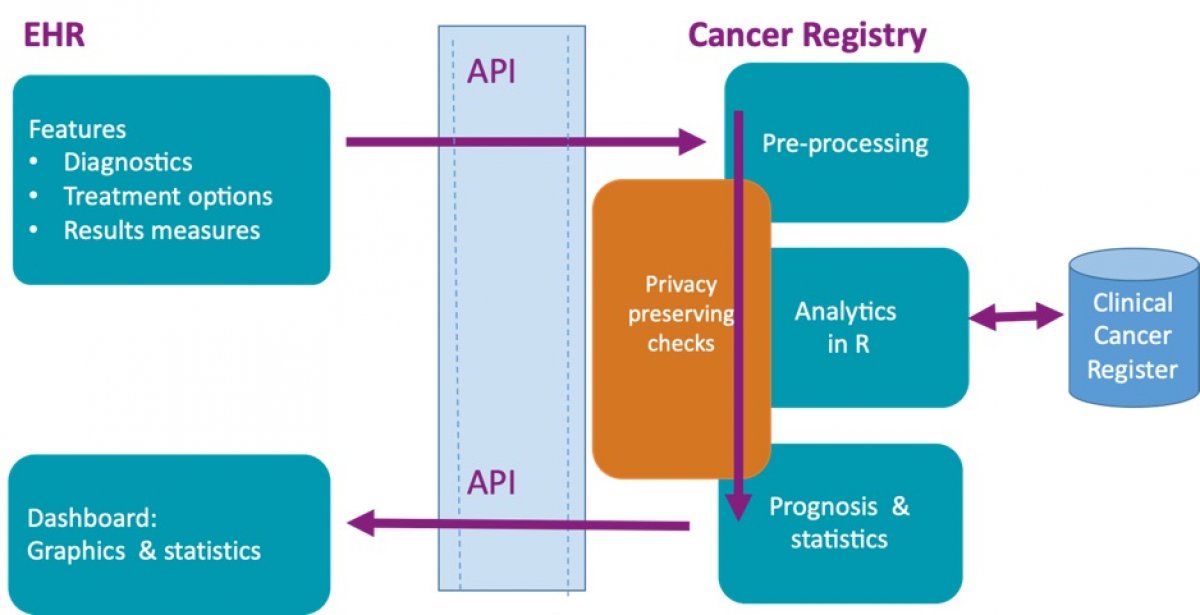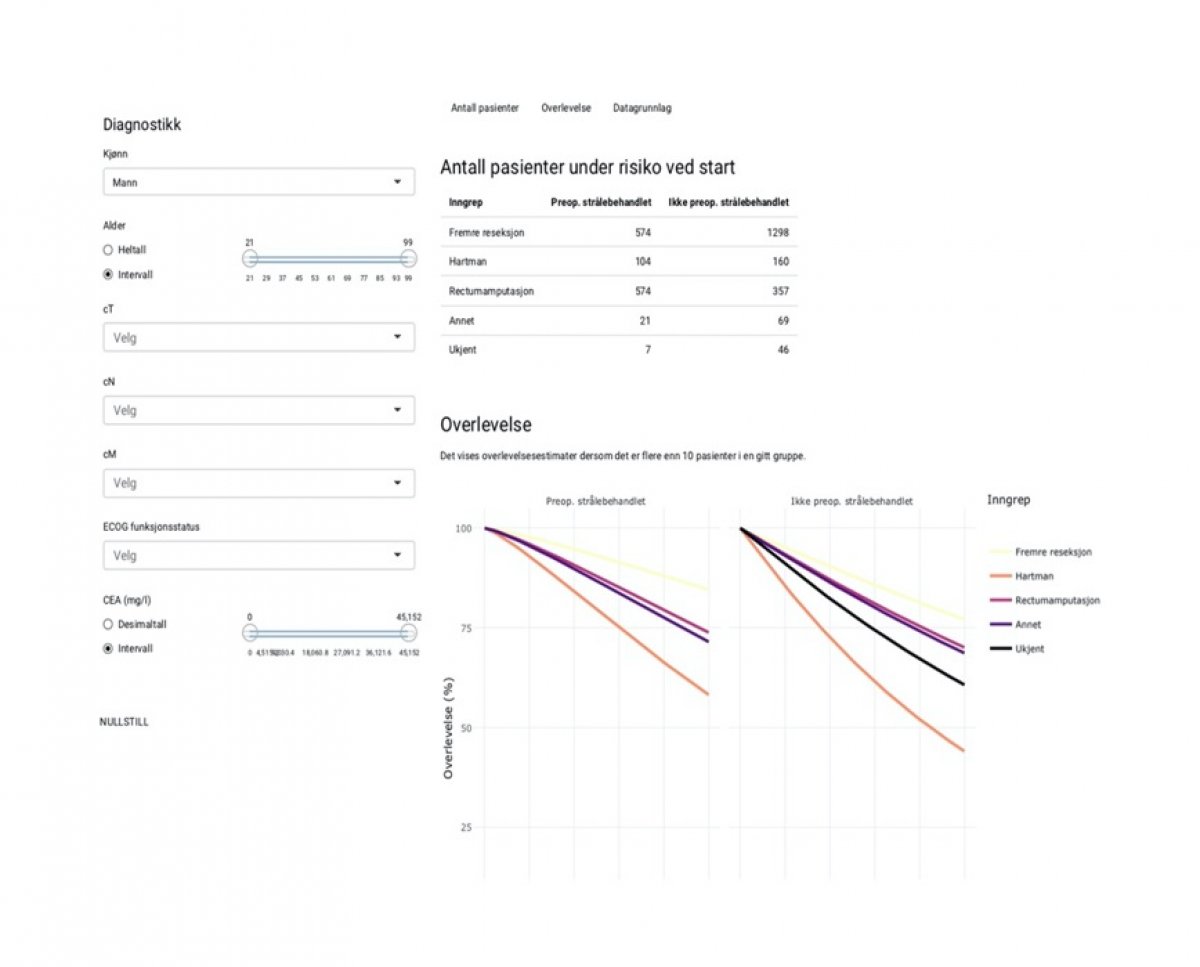In this
project we examine whether the Norwegian Clinical Colorectal Cancer Registry
(NCCCR) could be used to give clinicians real-time clinical decision support by
providing statistics based on an individual patient’s characteristics and the
matching sub-population in the registry.
Live precision statistics to the clinical dashboard

The traditional use of cancer registries is to provide data for medical research, for administrative or political decisions, or as insight into the quality of the health services provided. Such data could also improve decision making in clinical practice if a patient´s profile can be compared to similar patients in the registry, exploring outcomes for different treatment options.
Using statistics from NCR for real-time clinical decision support
We
developed a prototype IT-system which matches a patient in real-time to a
similar patient cohort in NCCCR. Here, R is used for the analytics and RShiny
for visualisations. The system capabilities are:
- Capturing the following relevant clinical parameters from patient medical notes; diagnostics, potential treatment options, and related outcomes measure,
- relay parameters to NCCCR,
- select relevant sub-population, and predict outcomes, and
- return results to electronic patient journal. By using all patients registered in NCCCR from 2004 to 2017, observed survival was calculated by the Kaplan-Meier method.

To ensure clinical value, a small group of clinicians and hospital leaders chose the relevant clinical parameters and guided the visual presentation of the results.
The first version of the current IT system was able to capture the relevant characteristics, communicate with the cancer register, perform the necessary analysis and return statistics for overall survival for a sub-population that was similar to an actual patient. Tested on different patients with varying profiles, the system returned relevant statistics that varied depending on the patient. Predicted survival for the relevant patient profile was presented by visualizing outcomes by Kaplan-Meier plots for different treatments. Clinical specialists and hospital leaders were presented the visualization and have subjectively verified the potential value of the information.

The next iteration of the system will extend the number of features for clinical parameters, treatment options and related outcomes. This is a novel use of register information, and implementation of the described system in the clinic will need clinical testing in order to prove the value for patient outcome and patient experience.
Status:
Finished
Partners:
Kreftregisteret, Oslo University Hospital - Intervention center
Topics
Jan Nygård
Head of Departement, Department of Registry Informatics
The Cancer Registry of Norway

Relevant Projects

Comprehensive clinical report from molecular diagnostics in cancer

Implementing Molecular Diagnostics in Clinical Oncology


